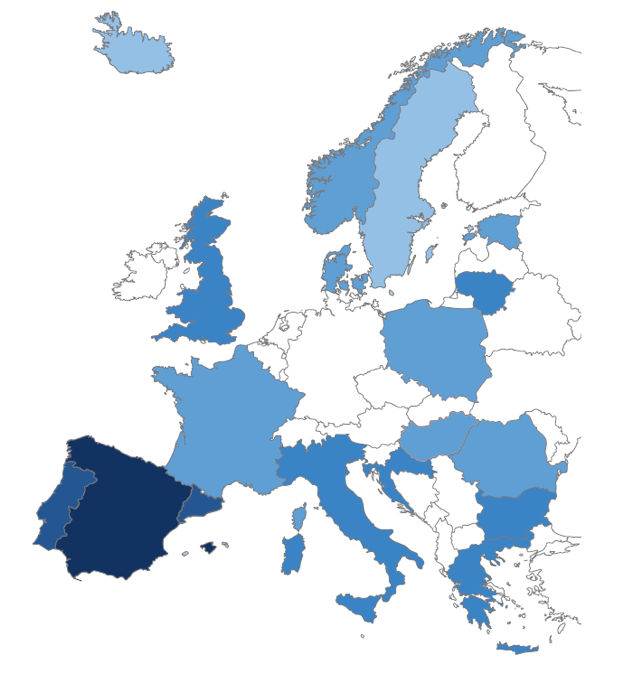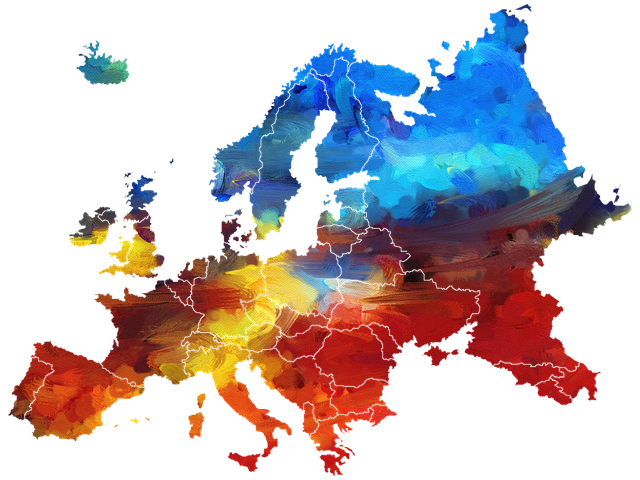The Standard European Alcohol Survey – Wave 2
SEAS-2 Publications
Publications coming out of the DEEP SEAS work on the Standard European Alcohol Survey:
- Kilian C, Manthey J, Moskalewicz J, Braddick F, Matrai S, López-Pelayo H, Rehm J (2023) The socioeconomic profile of alcohol use in Europe: Findings from a cross-sectional survey of 33 European countries. IJADR, 2023, 11(1), 13 – 23. doi: 10.7895/ijadr.0407
- Kilian C, Manthey J, Braddick F, López-Pelayo H, Rehm J (2023) Social disparities in alcohol’s harm to others: evidence from 32 European countries. Int J Drug Policy. Vol 118, August 2023. https://doi.org/10.1016/j.drugpo.2023.104079
SEAS-2 data available
The owner of the SEAS-2 data is the Health and Digital Executive Agency (HaDEA) of the European Commission. The DEEP SEAS group, as contractors of the tendered service contract number 20177113, are authorised to share this data publicly in line with HaDEA’s policy to provide open access to documents and data created with EU funding.
Researchers interested in accessing and using the data can download the public files below.
Translations of the SEAS-2 questionnaire can be obtained from the funding authority HaDEA,
Prior to any publication, researchers should request permission to use the data via email to: hadea-hp-tender@ec.europa.eu.
Download files:
- The SEAS-2 dataset (SEAS2 dataset 2022_rev1.cvs – 26MB)
- SPS layout and data input (SEAS2 SPS 2021.sps – 18KB)
- Codebook (SEAS2_codebook – 320KB)
- Database Guidelines for use (Database-guidelines.pdf – 224KB)
- Approved SEAS-2 Questionnaire – English version (SEAS-2 EN Master Q.aire.pdf – 778KB)
DEEP SEAS Task 1 – Analysis of SEAS 1
Task 1 of DEEP SEAS continued and extended the analysis of the first Standard European Alcohol Survey (SEAS), carried out by RARHA in 19 countries over 2015-16. The deeper DEEP SEAS analysis resulted in a comprehensive assessment of alcohol epidemiology over this period, including various consumption measures and harm to drinkers as well as to others.
Although the survey data had already been analysed descriptively in RARHA, and the methodology and results published, the full potential of the survey could still be further exploited. In particular, systematic analyses with respect to differences between different types of drinkers and abstainers and with regard to cross-country differences or regional clustering have been extended.
-
- Report from the DEEP SEAS extended analysis of the SEAS 1 data (available shortly or from HaDEA)
- The microdata from the RARHA HARMES SEAS 1 (available shortly or from HaDEA)

DEEP SEAS Task 2 – SEAS 2
Over 2019-20, Task 2 of the DEEP SEAS liaised with a network of country representatives in order to roll out the 2nd SEAS in 33 countries in the European Region (28 EU + Norway, Iceland, Bosnia-Herzegovina, Moldova and Serbia). While the surveying work was standardised and covered by an experienced surveying company (Kantar); in activating the country networks in this task, DEEP SEAS aimed to ensure that the ownership of the SEAS stays with the countries responsible, and promote future self-sufficient monitoring of alcohol use at the national level.
The anonymised data of the survey is to be made publically available (see below), to allow further analysis and data minimg on the national level.

The SEAS Survey in times of COVID-19 pandemicIn 2020, public and private life in Europe underwent drastic changes due to the outbreak of severe acute respiratory syndrome coronavirus 2 (SARS-CoV-2), and public health measures to contain the spread of the virus, which also affected health-related behaviours such as alcohol use. An independent rapid-response study, led by the Technische Universitaet Dresden and involving more than 20 research institutions from all over Europe, was set up to investigate self-reported changes in alcohol consumption during the SARS-CoV-2 pandemic. The findings from this project, with data from surveys in 21 languages, inform the interpretation of the SEAS 2 findings to make these more relevant to the COVID-19 pandemic era. Read the protocol of the European Study of Alcohol in times of COVID here. |
